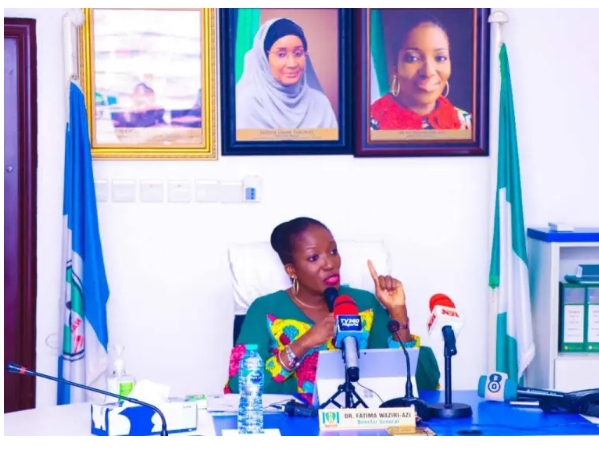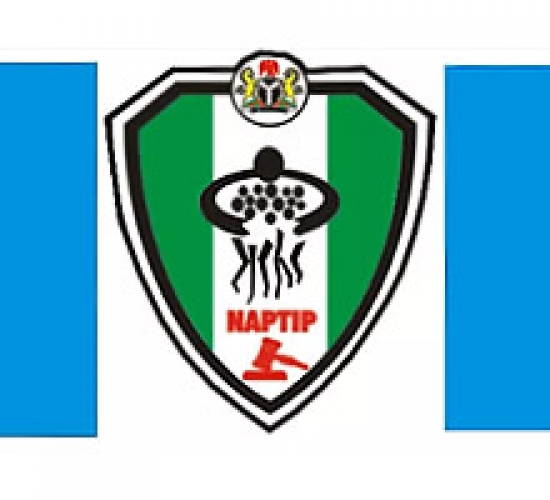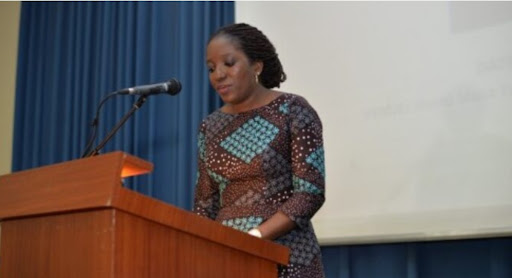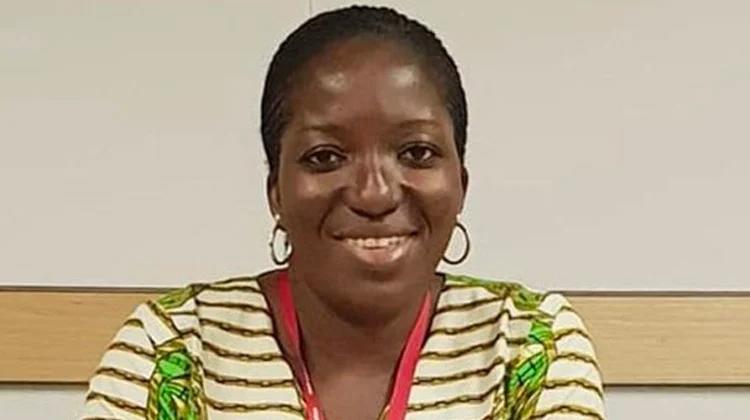Paternity fraud, a situation where a man is incorrectly identified as the biological father of a child, has become more rampant in Nigeria and often occurs between unmarried couples where a father seeks to avoid financial liability for a child he does not believe to be his.
TheNewsGuru.com (TNG) investigation shows that in recent times, paternity disputes are not uncommon among married couples too and the popular assumption is that women have become more promiscuous, maintaining multiple sexual partners, even within the confines of marriage.
Some of these culprits, it is alleged, get married to well-to-do men because of the financial security they hope to benefit, but continue to search for love elsewhere, often finding it in the arms of men who do not match their new social status but possess all the physical attributes they want their children to have.
A Geneticist at DNA Centre for Paternity Test, Abiodun Salami, said paternity fraud is most common with the first child.
“It is more prevalent among younger couples these days because it has become so common to see a young lady preparing for marriage having more than one boyfriend. Based on my work experience, paternity fraud is mostly with the first children,” Salami said.
Besides infidelity, there are other factors responsible for the alarming rate of paternity fraud in Nigeria, which Salami pegged at 40 per cent; but the most common cause is a new concept called cryptic pregnancy.
Cryptic pregnancy or stealth pregnancy is a phenomenon that occurs where a woman does not know that she is pregnant until an advanced stage in pregnancy, when she goes into labour or in some extremely rare cases after she has given birth.
Cryptic pregnancy is quite common as it occurs in one out of 475 pregnancies. A woman with such pregnancy will not experience the symptoms commonly experienced by pregnant women.
Cryptic pregnancy as a new trend in human trafficking
In Nigeria, however, the concept of cryptic pregnancy has a different meaning and has become a new trend in human trafficking and a multi-million-naira business run by doctors, nurses and midwives in some hospitals and fertility clinics mainly located in Aba, Owerri, Port-Harcourt and Lagos.
A young female nurse in her mid to late twenties, Blessing Amadi is an agent for Divine Hospital, located at Nkwo Orji in Owerri. She is actively on the lookout for women with infertility issues and directs them to the hospital for consultations and treatment.
These fraudulent health professionals driven by greed, prey on women who appear desperate to have children, taking advantage of their vulnerability, they brainwash them with all sorts of lies that even put their lives at risk.
Today, the average cost of a crypto pregnancy in Nigeria is N1.2 million for a single child and an upward of N2 million for multiple births, but the cost notwithstanding, more women are embracing this seemingly attractive solution to their infertility problem knowingly and sometimes unknowingly.
A Diagnostic Radiographer Nnabuike Tochukwu, said these fraudsters inject women with high level of estrogen or sometimes progesterone hormones that leads to the formation of cysts and cause their stomachs to be bloated, creating an impression of pregnancy.
The victims are warned not to do a scan because the gel applied to the stomach during a scan can be harmful for the baby or that the baby will not be visible during the scan because it is a cryptic pregnancy.
“By the ninth month these women will be booked for Caesarean Session and put under general anesthesia,” Tochukwu explained.
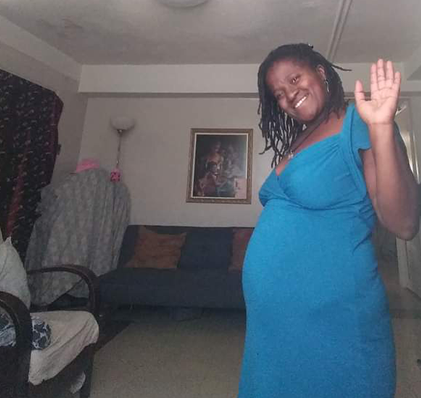
A lady, Penny Morris has been pregnant for over 30 months and believes God wants her to name her baby Ezekiel.
In many cases, the woman carries the pregnancy way beyond nine months, as they are told that cryptic babies develop slowly and a fake Caesarean Session is performed by these fraudulent health practitioners whenever a baby is available, only to perfect their deceit.
In March this year, a dispatch rider identified as Williams Tadule, narrowly escaped being lynched by angry mobs at Sangotedo area of Ajah in Lagos state, after a baby was reportedly found inside the courier box of his bike.
The crypto pregnancy victim only wakes up from unconsciousness to see her baby or babies by her side, but in actual fact, it is another woman’s baby that is delivered to her.
In some cases, such a woman is able to stimulate milk production by using a breast pump, but may not produce sufficient quantity to meet the needs of the baby and would have to supplement with formula.
However, suspicion may arise when she is unable to breastfeed their baby, prompting the call for a Deoxyribonucleic Acid (DNA) test. At other times, immigration requirements and child custody are among the reasons why people opt to take a DNA test and it is only when a test is conducted that it becomes a verified case of fraud.
A former medical doctor at an immigration clinic, Ibe Chiemezie, recalled an incident where a 60-year-old Nigerian woman had come to get a passport for a baby she claimed she birthed two weeks earlier after getting pregnant in the United States.
Chiemezie said officials became suspicious even though she had presented a video of herself in lithotomy position in a supposed labour room with an alleged nurse, and the case was subsequently referred to the National Agency for the Prohibition of Trafficking in Persons (NAPTIP).
Our investigations further revealed that while women who have never been pregnant are the major targets of these fraudsters, women who have had children from real pregnancies can also be hooked on by the crypto pregnancy hypnotism.
For this second category of women, it is the fear of losing their marriages if they don’t bear a male child, the stigma associated with adoption and other extreme cultural humiliations that drive them into becoming prey to these fertility scammers.
The appeal is even stronger for victims who have experienced failure with other types of Assisted Reproductive Technologies such as In vitro fertilization-embryo transfer (IVF) and Intrauterine Insemination (IUI).
Their reasoning becomes automatically suspended when they are told they will be able to choose the sex of their babies and the number they want – single, twins or triplets.
“So it is both maternity and paternity fraud, but the most rampant is paternity fraud. If a father comes with five children for a DNA test and all the five are his, it is abnormal. If we say everybody in the country should go for paternity test, there will be issues, but I think DNA test at birth is okay for us as a nation,” said Salami.
Bitter and Sweet Experiences of Victims of Cryptic Pregnancies
Two years ago, a mother of one, Stella Francis Edet, made news headlines when she insisted on getting a refund of N800,000, which she paid to a traditional birth attendant, Comfort Edet Effiong to enable her to deliver her Cryptic pregnancy.
Edet, who was in search of a second child after she lost a baby, had been referred to a fertility centre called Sapodic Clinic in Akwa-Ibom state run by a supposed medical doctor, Saturday Aaron, who gave her injections that caused her stomach to swell.

Stella Edet and Chinwe Kings
When she was due to have her cryptic baby, Edet was introduced to Effiong, who gave a bill of N800,000, which had to pay upfront before the commencement of “labour”. But during “labour”, the birth attendant covered her face with a wrapper, used a razor to cut her pelvis and thereafter brought a baby claiming that she delivered the baby.
Edet, who already had the experience of real labour, raised the alarm that she was not the mother of the child brought to her and the dispute and fight ensued between both parties before the police were brought into the matter.
In another case, Gospel singer Chinwe Kings, who had been trying to conceive for 16 years narrated how she was delivered of twins after carrying a cryptic pregnancy for 3 years and 4 months.
Kings disclosed that throughout the period of her pregnancy, she continued to see her period and all pregnancy tests she took came out negative. The singer said she initially thought she was under a kind of spiritual attack until she heard the testimony of another woman who had passed through a similar situation.
The Cryptic Pregnancy Business Value-Chain
Criminalization of abortion, the stigma of being a single mother and poverty force many young girls to either misattribute their babies to the wrong father or join the baby trafficking network.
Abortion in Nigeria is illegal and carries a heavy jail sentence. The abortion laws of the Criminal Code are expressed within sections 228, 229, and 230. Section 228 states that any doctor providing a miscarriage to a woman is guilty of a felony and up to 14 years of imprisonment.
A 2018 global family planning report by the International Conference on family planning (ICFP) claims that in the year 2017, Nigeria recorded over 1.3 Million unwanted pregnancies and only 13.8 per cent of Nigerian women used contraceptives in the year under review.
Several times, the police have conducted raids on facilities where these young girls in their productive age are housed and have arrested many operators, but the industry continues to thrive, serviced by the increasing demand for babies either for crypto pregnancy or ritual purposes.
In addition to the girls, agents and medical practitioners who profit from this discreet trade, there is another group cashing out on the crypto pregnancy fraud, often operating independently by selling products used in sustaining these pseudo pregnancies.
For between N15,000 and N20,000, the Chief Executive Officer of Life in Spirit Herbal Clinic, Martina Awoke, who hails from Ebonyi State, supplies herbal supplements to cryptic pregnancy moms-to-be.

Awoke’s herbal products for cryptic pregnancy moms-to-be
According to Awoke, these herbs will help them test positive, cause the baby to grow healthy, prevent miscarriages by cooling the stomach from hotness, cure infections and fight other unfavourable conditions surrounding the baby.
“Most times, blood toxins can cause some women to have hormonal imbalance which might cause one to be pregnant without knowing and the baby can’t be seen in the womb, or the heartbeat can’t be heard.
“This cryptic pregnancy has been happening before we were born, only that our old parents used natural herbs to take care of pregnancies, no matter how the position of the baby or babies might appear,” she explained.
We are prosecuting offenders – NAPTIP
Meanwhile, the Director-General of the National Agency for the Prohibition of Trafficking in Persons (NAPTIP), Fatima Waziri-Azi has said the Agency is aware of the development and has been making tremendous efforts to create the necessary awareness with a view to curbing it.

DG, NAPTIP, Dr. Fatima Waziri-Azi
In the last one year, the Agency said it has rescued no fewer than 30 babies from criminal elements, traced the parents and reunited the babies with them while those arrested are facing prosecution in different Courts across the country for Child Trafficking.
“The term paternity fraud is a narration for Cryptic Pregnancy, otherwise, referred to as ‘Buying and Selling of Babies’. Based on intelligence and surveillance, NAPTIP has made several arrests in this regard with ongoing investigations and prosecution in Court of Law,” Waziri – Azi stated in an emailed response to our enquiry.
NAPTIP, through the various Zonal Commands and State Task Forces on Human Trafficking, has also embarked on advocacy to critical partners as well as dialogues on issues surrounding buying and sales of babies with a view to ensuring that people are adequately informed on the need to shun the act and expose those engaging in it.
Also, Nigeria’s House of Representatives has also launched an investigation into this disturbing trend of human trafficking in the country.
